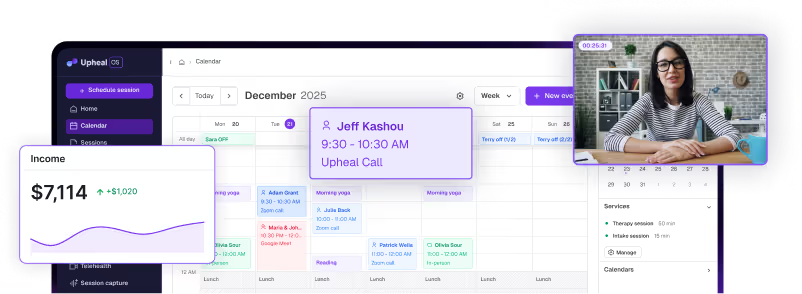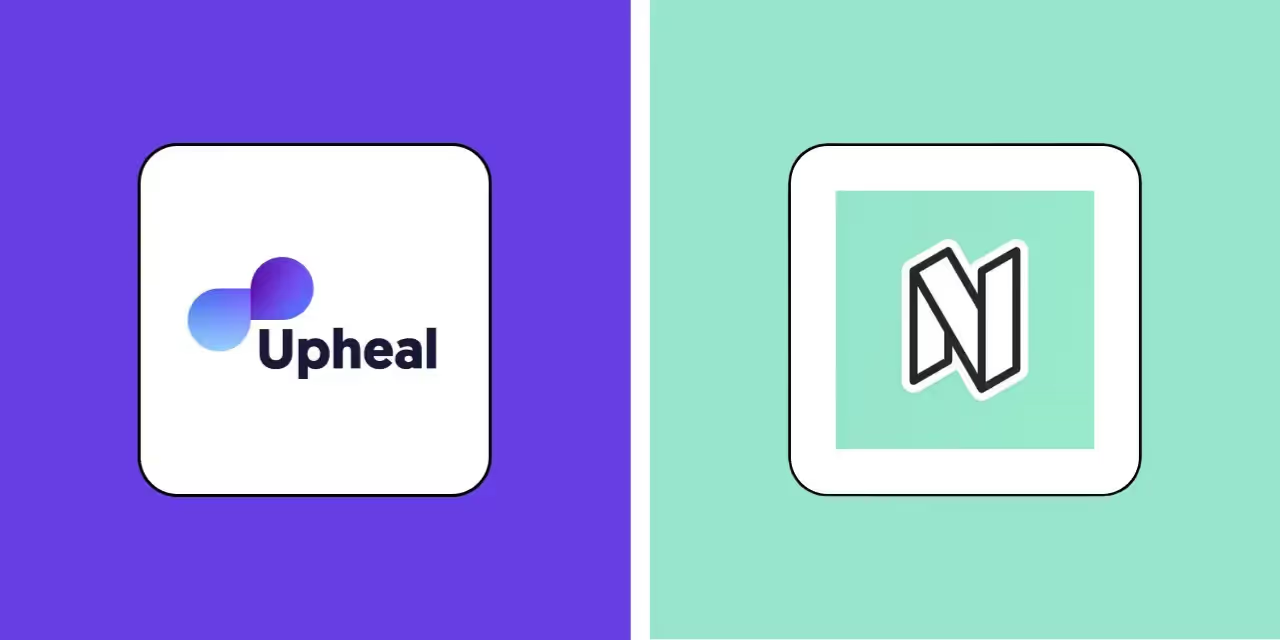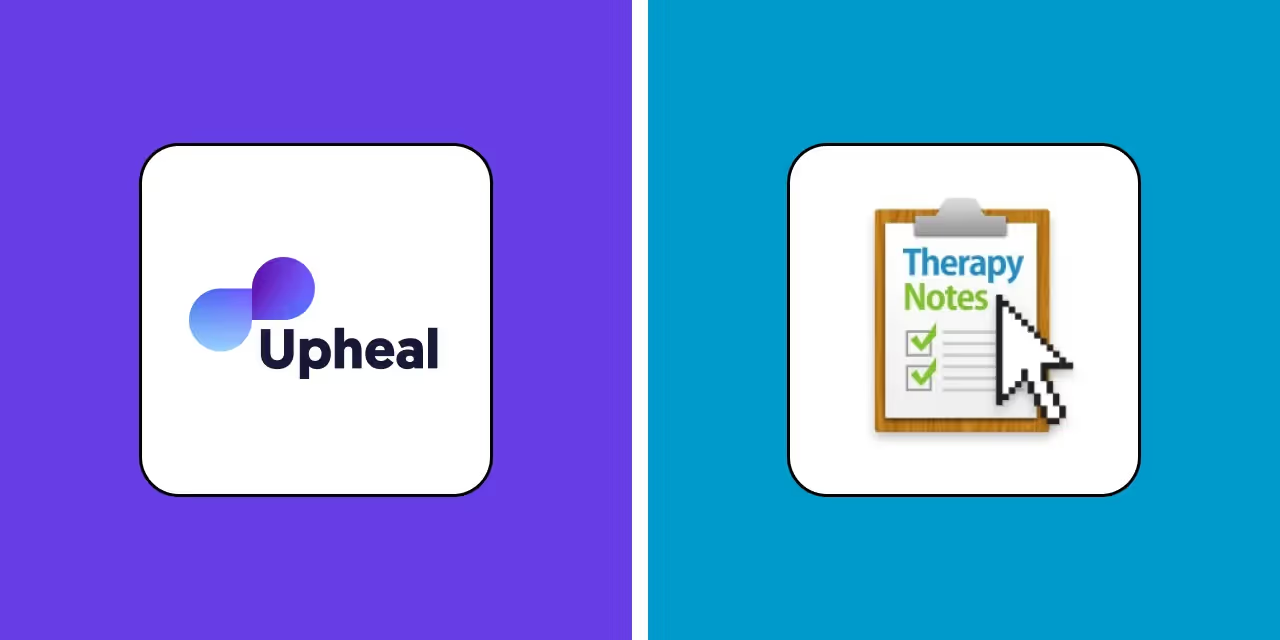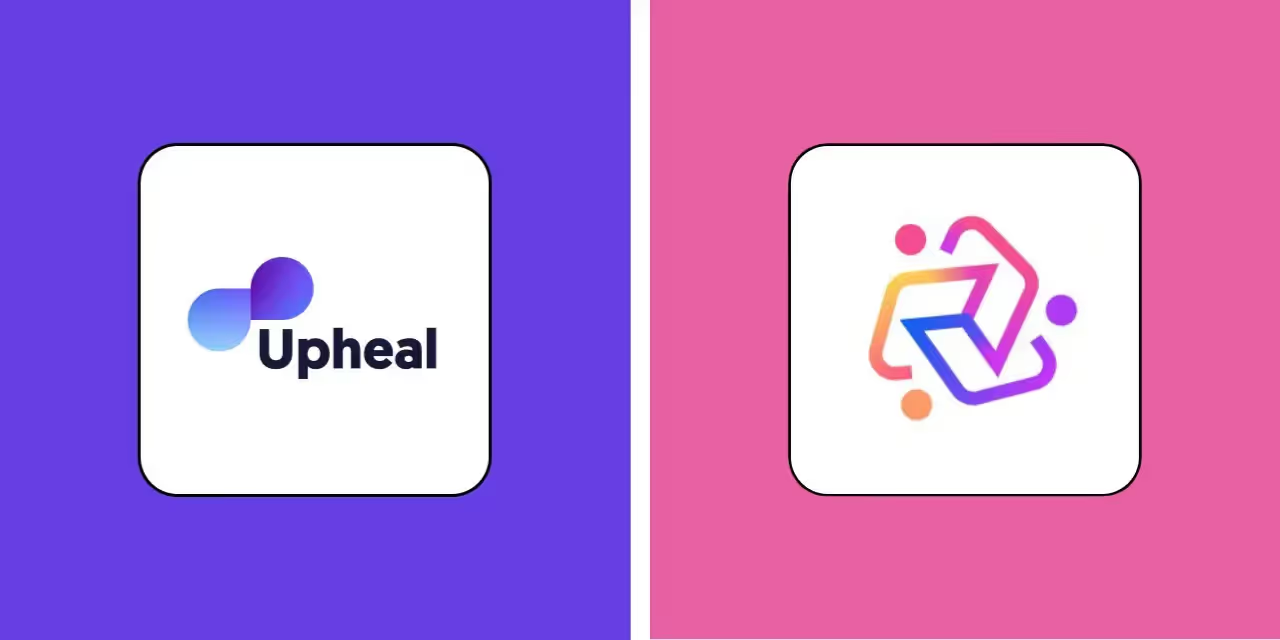Upheal vs AutoNotes: Privacy, value, and the true cost of AI documentation
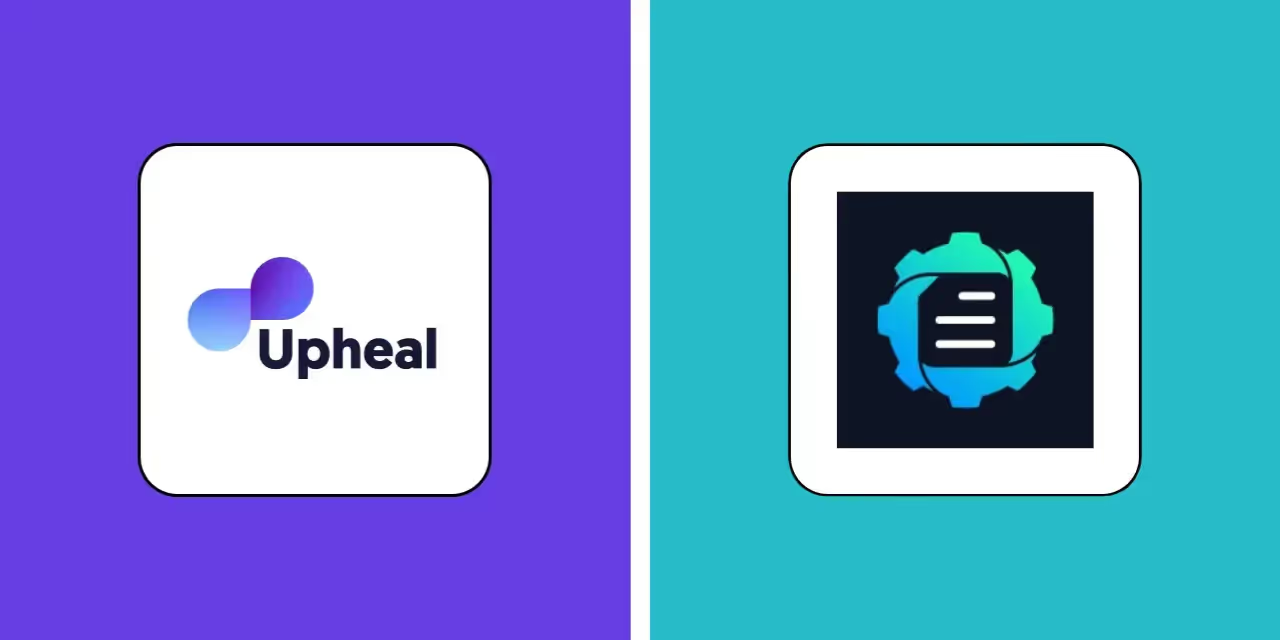
The promise of AI-powered therapy notes feels almost too good to be true.
After years of drowning in documentation, many therapists find themselves caught between hope and hesitation when evaluating these tools.
The hesitation often centers on a fundamental question: How can I be sure my clients' most vulnerable moments aren't being used inappropriately?
This concern becomes especially acute when comparing platforms like Upheal and AutoNotes, which take markedly different approaches to transparency, value, and customization.
AutoNotes positions itself as a comprehensive documentation solution with AI-powered insights.
Upheal takes a privacy-first approach, offering unlimited notes even on their free plan while maintaining strict ethical boundaries around client data and providing unprecedented customization through Smart Sections.
Which subscription is the best deal?
The most striking difference between these platforms isn't just features — it's accessibility.
Upheal delivers 80% of AutoNotes' core value completely free, while AutoNotes limits free users to just one session per day and 30 text-based notes monthly.
For solo practitioners watching every expense, this difference counts.
Where AutoNotes requires a $25/month commitment for basic functionality (125 sessions), Upheal provides unlimited notes, video calling, and manual uploads at no cost.
Even their premium features cost significantly less. Upheal's Premium plan at $69/month includes advanced analytics and custom AI prompts that AutoNotes doesn't offer at any price tier.
This isn't just about saving money; it's about removing barriers to ethical AI adoption. When quality documentation tools are accessible regardless of practice budget, more therapists can focus on what matters most: being fully present with their clients.
Which platform is more secure?
The most significant distinction between these platforms lies in their approach to data privacy and client consent — areas where therapists rightly have the highest concerns. And, between Upheal and AutoNotes, one platform raises more questions than answers when it comes to how they handle protected information.
The information in the table above is current as of July 2025. It will be updated quarterly to reflect any recent improvements to AutoNotes’ privacy policy as they catch up to Upheal.
The concepts in the table above offer a solid way to assess the privacy of an AI medical scribe, and AutoNotes decisively fails the test. Many therapists are aptly event more concerned about fundamental questions on how AutoNotes handles protected health information (PHI).
At first glance, you'll see a little HIPAA graphic on their homepage, and mention in their privacy policy that they recognize HIPAA protections. As you keep reading, you'll see claims that they don't even collect or store PHI. AutoNotes is able to make that claim because, buried in their terms of service, they put it on the therapist to ensure that no PHI is shared when using the platform.
Now think: when was the last time you had a session where absolutely no PHI was disclosed or referenced?
HIPAA compliance means consciously designing data practices that are purpose-built for handling PHI responsibly. That is work you simply must do if you're selling a tool that purports to be specifically for mental health care. It isn't enough to merely acknowledge the law exists, and put compliance back on the therapists who are entrusting your platform. It's a liability to therapists, and potentially harmful to the clients in their care.
Data training and consent
Upheal requires explicit opt-in consent from both therapist and client before any session data is used for AI model training. This consent-first approach ensures complete transparency about how therapeutic conversations are handled.
AutoNotes markets itself as having high privacy standards, but their policy documents leave room for ambiguity around data usage that leaves important questions unanswered. For something as sacred as client confidentiality, this uncertainty can feel unsettling to therapists who need crystal-clear assurances about their clients' protection.
Security and legal protection
Both platforms maintain strong security practices, but Upheal's approach removes ambiguity from areas where therapists need absolute clarity. Their SOC 2 Type II certification requires rigorous independent auditing, while their commitment to notifying therapists about subpoenas and separating notes from transcripts provides concrete protections that therapists can confidently explain to clients.
Feature comparison
Beyond privacy, the platforms reveal different philosophies about what therapists truly need from AI documentation.
The information in this table is current as of July 2025.
Note customization
AutoNotes allows you to use note templates that can be further customized with Additional Instructions; AI prompts that are applied to the full template.
Upheal's Smart Sections feature allows therapists to create entirely custom AI-powered sections using their own prompts. Because therapists can prompt at the section level (rather than applying the prompt to the whole template), they get a template that is much more bespoke with Upheal.
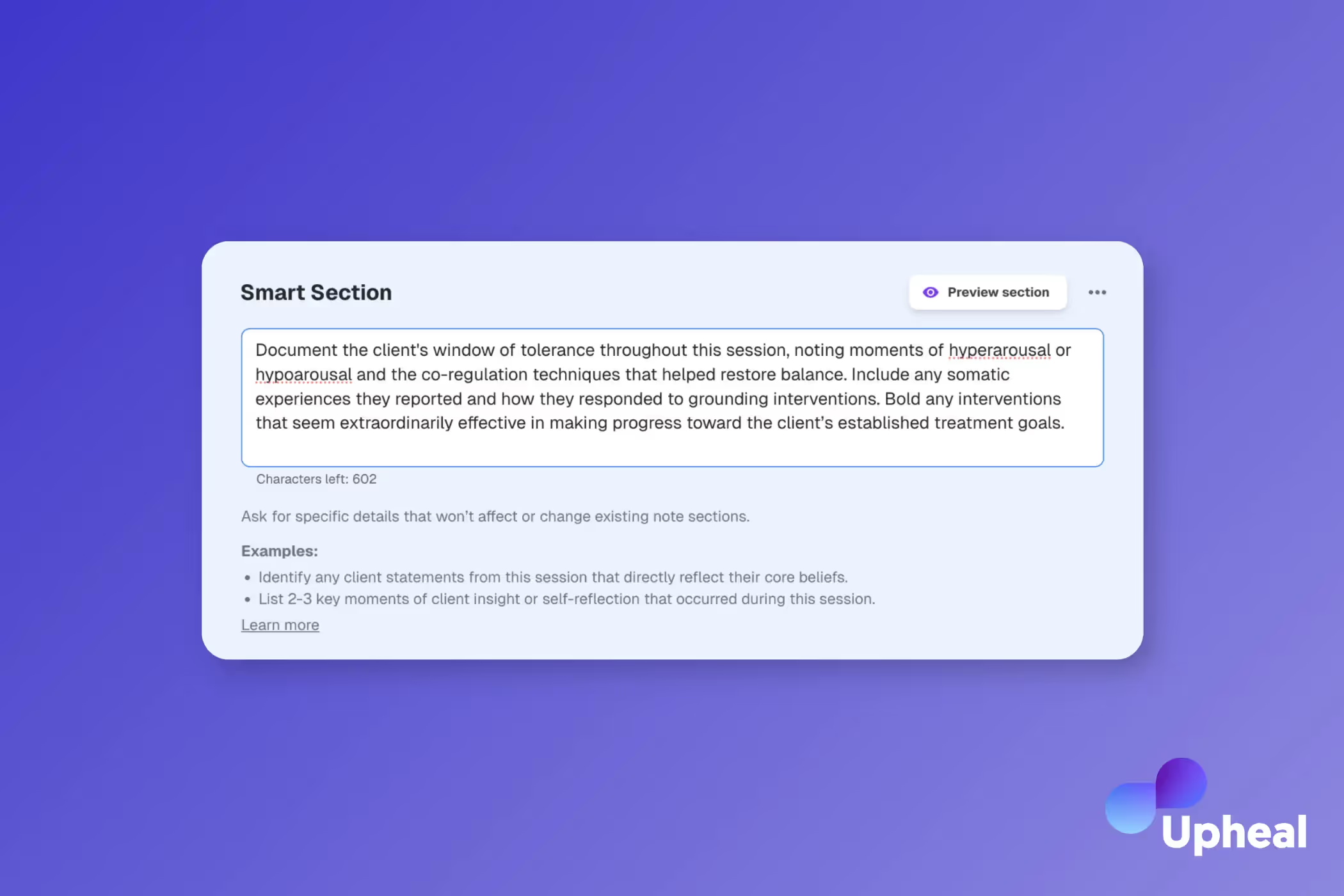
You can teach the AI to capture exactly what matters in your practice — whether documenting EMDR phases, tracking dialectical behavior therapy skills, or monitoring family systems dynamics. This level of customization transforms your AI from a generic transcription tool into a clinical partner that understands your therapeutic approach.
Flexibility
AutoNotes is limited to transcribing sessions automatically, requiring you upload session audio or a dictation, and then using that transcript to generate notes.
Insights & analytics
AutoNotes uses its AI to make recommendations to the therapist on how to proceed with care, but it does not surface analytics or insights over the course of the client’s care.
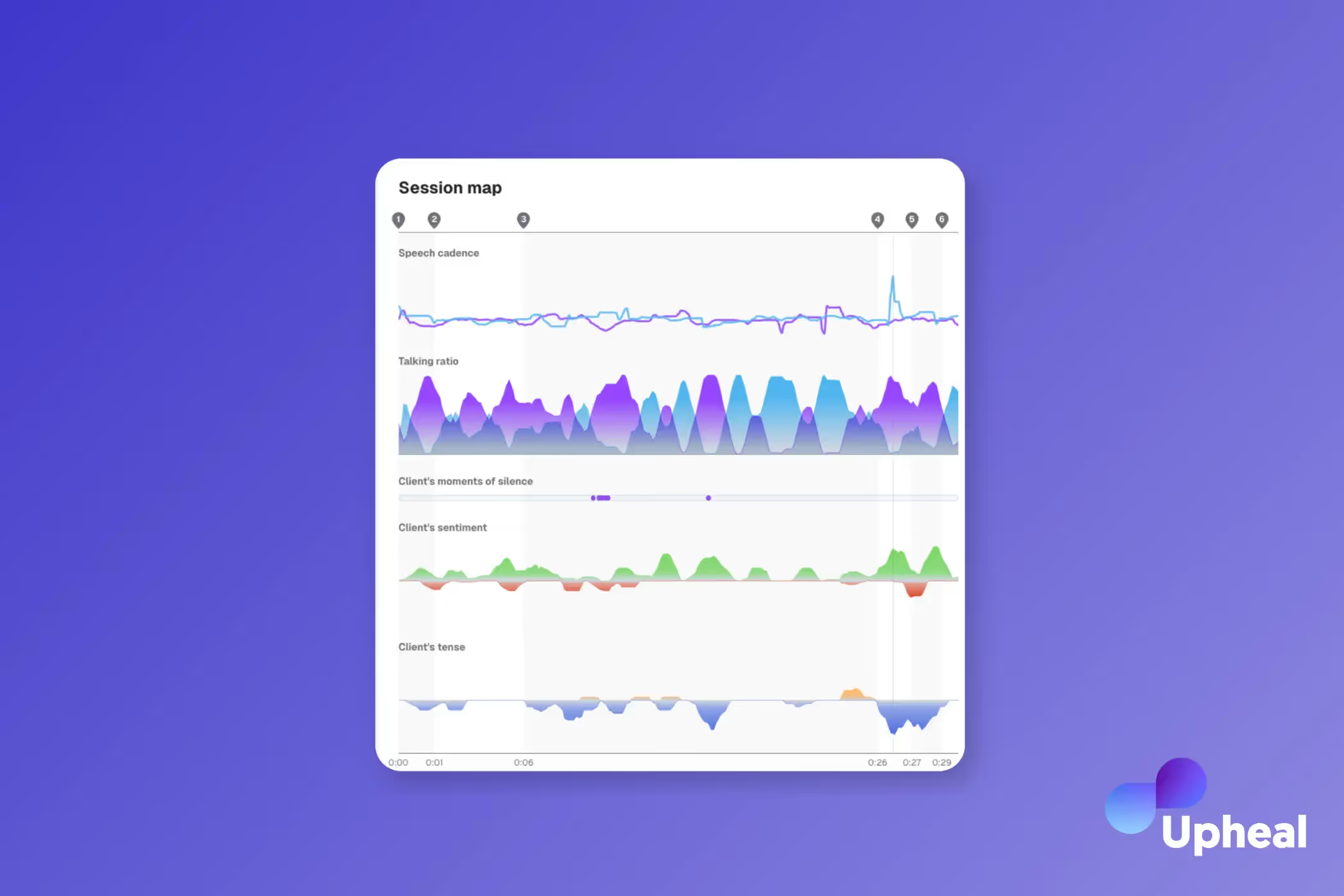
Upheal, by comparison, has advanced analytics that offer insights into therapeutic dynamics, session patterns, and client behavior.
What therapists think about Upheal and AutoNotes
The therapeutic community's reviews reveal what practitioners truly value when balancing efficiency with ethics.
Technical reliability emerges as a fundamental concern, with some therapists reporting significant frustration with AutoNotes' core functionality.
AutoNotes can be useful when working properly. I’m having trouble with a previous narrative being incorporated into the next client’s that I do. Cannot use right now, and not getting a response. -Sheila Chunis, LPC
When basic features like session separation fail, it creates clinical documentation risks that therapists simply cannot accept. These aren't minor inconveniences — they're fundamental threats to client confidentiality and clinical accuracy.
Upheal’s emphasis on customization resonates deeply with mental health professionals who work across diverse therapeutic modalities:
THIS MAKES ME SO HAPPY!!! It is exactly what I was wanting and I just made the most perfect note that fits in with our note structure. -Lindsey Ferris, MS, LMFT
This reflects a broader need among therapists for tools that adapt to their clinical approach rather than forcing standardized templates that may miss the nuances of specialized work. When your AI understands your therapeutic framework, documentation becomes an extension of clinical thinking rather than a burden.
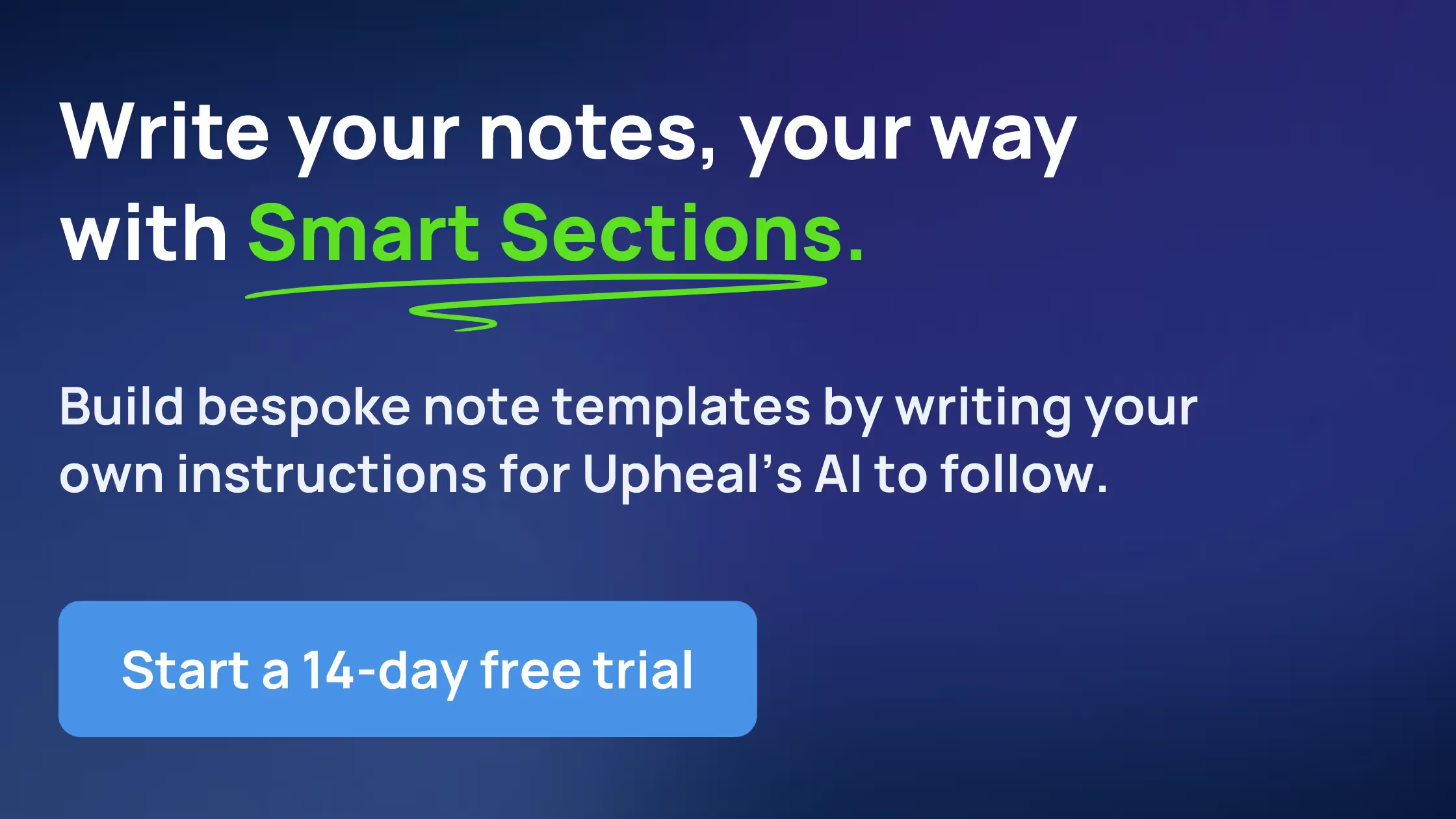
Privacy transparency matters deeply to mental health professionals who understand the sacred nature of therapeutic relationships:
Many companies haven’t aligned their Privacy Policy and Terms of Use with their marketing claims — often implying stronger privacy protections than the legal docs actually offer. Props to Upheal for making privacy a differentiator. That matters to therapists. -Hannah Weisman, PhD
Choosing your path forward
The decision between Upheal and AutoNotes comes down to value, privacy, and flexibility — areas where Upheal consistently delivers superior solutions.
Choose Upheal if you want:
- Maximum value starting with unlimited free notes
- Privacy-first design with transparent consent processes
- Advanced customization through Smart Sections
- Multi-language support and flexible session capture
- Deep therapeutic analytics that support professional growth
Consider AutoNotes if you:
- Prefer structured templates with minimal customization needs
- Are comfortable with standard healthcare data practices
- Primarily need basic dictation and progress tracking
For most therapists, Upheal's combination of value, privacy protection, and clinical sophistication makes it the clear choice. The platform's ability to provide 80% of AutoNotes' functionality for free, while offering superior privacy protections and unlimited customization potential, removes the traditional barriers to ethical AI adoption.
The mental health field stands at a unique moment where the tools we choose today will shape therapeutic relationships for years to come. Upheal's commitment to accessible pricing, transparent privacy practices, and flexible customization ensures that advanced AI documentation serves every practice, regardless of size or budget.
